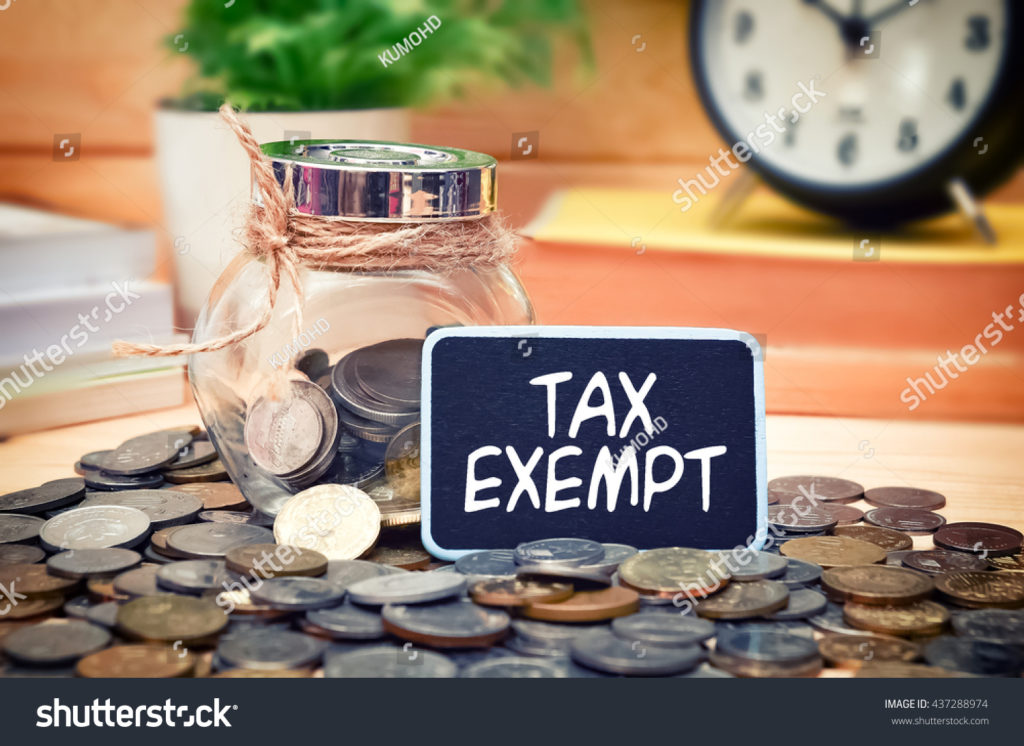Table of Content for Reverse Charge Mechanism
- Meaning of Reverse Charge Mechanism (RCM)
- Example to understand better
- Introduction to Reverse Charge Mechanism
- Relevant laws in Goods and Service Tax
-
Exemption from Central Goods and Service Tax
- Reverse Charge Mechanism for only the furtherance of business
- Input Tax credit can be availed by the recipient or the supplier?
- Self invoicing in Reverse Charge Mechanism
- Compliance required as per Clarification in C.B.E & C. Flyer No.12 issued in January 2018
- Reverse charge under Integrated Goods and Service Tax
- Further the list of similar laws in CGST, IGST and UTGST
- Further reference
-
Meaning of Reverse Charge Mechanism (RCM)
When a provider of goods/ services supplies goods/ services to a person known as ‘receiver’, normally, it is the provider who pays the indirect tax. It is GST in our case. However under certain circumstances it is the receiver of goods/ services who becomes liable to pays the tax to the government. This concept is called Reverse Charge Mechanism (RCM). Here as the name suggests the tax liability is reverse of the normal course of taxation in a provider- receiver relationship.

2. Example to understand better
Suppose Company ABC who is in the business of Goods and Transport provider transports goods from the premise of Company X to the premise of Company Z and charges an amount of Rs.500/-.Now Company Z settles the bill of Rs.500/-. Later he realized that Company ABC has not charged him GST in the bill. Ram Company Z’s tax consultant was quick to realize that it is his company who has to discharge the GST on the bill/ invoice as the tax liability has to be settled under Reverse Charge Mechanism (RCM).

3.Introduction to Reverse Charge Mechanism
With the above example you have already got some grasp on the concept under discussion. Let us now move a bit further to understand the prevalent structure of our Indian law on GST.
Reverse Charge Mechanism in indirect tax is not a new concept. It was already there in the Service Tax regime in services like Goods and Transport service, imports of service, etc. With the advent of Goods and Service Tax period in July 2017 RCM has just donned a new cloth. Though there are some differences in tax structure form the previous period. One most prominent difference is applicability of reverse charge mechanism on goods and service both unlike in Service Tax regime where RCM was applicable only on services.

4. Relevant laws in Goods and Service Tax
Sub section 3 of Section 9 of Central Goods and Service Tax, 2017 is the Central Government with the recommendation of Goods and Service Tax Council (GST Council) specifies the supply of goods and services on which Reverse Charge Mechanism (RCM) would be applicable. Government has specified the goods to be charges tax under reverse charge mechanism under notification no. 04/2017-Central Tax (Rate) dated 28.06.2017 as amended by notification no. 36/2017-C.T. (Rate) dated 13.10.2017, no, 43/2017 dated 14.11.2017 and 11/2018- C.T. (Rate) dated 28.05.2018. Now it would be helpful to know the list of items under this category before proceeding further. Kindly refer to the department website for the relevant notification.
Government has specified the services to be charges tax under reverse charge mechanism under notification no. 13/2017-Central Tax (Rate) dated 28.06.2017 as amended by notification no. 22/2017 dated 22.08.2018, no. 33/2017 C.T.(Rate) dated 13.10.2017 and 03/2018- C.T. (Rate) dated 25.01.2018 and no. 15/2018-C.T (Rate) dated 26.07.2018. It would be useful to refer to the department’s website for the above notification before proceeding further.
Sub section 4 of Section 9 of the Central Goods and Service Tax, 2017 gives the second condition for charging GST on reverse charge mechanism. According to this sub-section the liability of CGST on the receiver of goods/ service arise if
- The provider(supplier) of goods/ services is an unregistered person under GST and
- The supply of goods and service is in the furtherance of business.
The first point is quite self explanatory. However the second point is associated with a clarification. Here is where we shall focus in our further discussion (point 6 of this article).
However there is a one important amendment to section 9(4) of CGST Act,2017. The Central Goods and Service Tax (Amendment) Bill.2018 No. 31/2018 dated 29.08.2018 the followings were substituted
“(4) The Government may, on the recommendations of the Council, by notification, specify a class of registered persons who shall, in respect of supply of specified categories of goods or services or both received from an unregistered supplier, pay the tax on reverse charge basis as the recipient of such supply of goods or services or both, and all the provisions of this Act shall apply to such recipient as if he is the person liable for paying the tax in relation to such supply of goods or services or both“
With this amendment the government may specify the goods and services vide any notification in respect of which any registered person shall be liable for CGST under section 9(4) of the CGST Act,2017.
You may read through this amendment by following this link.
5.Exemption from Central Goods and Service Tax
Under Notification no. 08/2017 C.T. (Rate) dated 28.06.2017 all intrastate supplies from an unregistered supplier to a registered receiver of goods/ services is exempted from tax upto transaction of Rs.5,000/- per day.

6. Reverse Charge Mechanism for only the furtherance of business
[Clarification in GST master class held on 13.07.2017 press release no. 78/2017 dated 13.07.2017]
In the GST master class on 13.07.2017 when on the spot question of whether purchase of the old gold jewellery by an unregistered jeweller from a consumer is treated under RCM was raised. As the consumer is getting the consideration for the sale of old jewellery u/s 9(4) the liability of Goods and Service Tax @ 3% appears to fall on the consumer.
On examination it was clarified that even though supply of goods was from the individual it was not for the ‘furtherance of business’. Hence such supply shall not attract Goods and Service Tax under reverse charge mechanism. The jeweller has the responsibility of paying the tax.

7.Input Tax credit can be availed by the recipient or the supplier?
The input tax credit can be availed by the recipient of service if he otherwise eligible. The supplier cannot avail input tax credit in his electronic credit ledger. Clarification of the same is given in [C.B.E & C. Flyer No.12 issued in January 2018].
8. Self invoicing in Reverse Charge Mechanism
One general question that may arise in your mind is if the service provider is unregistered then who would issue tax invoice for the tax that is payable. Here there is a provision of self invoicing. The recipient of service would raise a tax invoice on himself where RCM under 9(4) is applicable.
9. Compliance required as per Clarification in C.B.E & C. Flyer No.12 issued in January 2018
- As per section 31 of the CGST Act, 2017 read with Rule 46 of the CGST Rules,2017 every tax invoice has to mention whether the tax in respect of supply is payable under RCM or not.
- Every registered person has to maintain separate records for the supply of goods attracting tax liability under reverse charge mechanism.
- Any tax amount payable under reverse charge mechanism has to be paid by debiting the electronics cash ledger. No payment under RCM can be discharged from the input tax credit.
- Invoice level information has to be furnished in table 4B of GSTR-1.
- Reverse Charge mechanism is also applicable on the advances given for such supplies. The goods and service tax liability has to be discharged by the person making advance.
In the course of discussion we have missed the reverse charge mechanism concept in IGST, UTGST and SGST. It is to be noted that the concept remains the same however the list of goods/ services where RCM is applicable may vary.
The relevant notification for IGST, UTGST and SGST is given below:
10. For IGST
Under Section 5(3) of the Integrated Goods and Service Tax Act, 2017 the goods and services are notified where reverse charge mechanism is applicable in inter-state supplies. The list of goods is contained in notification no. 04/2017 Integrated Tax (Rate) dated 28.06.2017 services is contained in notification no. 10/2017 Integrated Tax (Rate) dated 28.06.2017 as amended from time to time.
Section 6(1) of the Integrated Goods and Service Tax Act, 2017 states the exemption given to any registered person receiving supplies from an unregistered supplier from paying tax under reverse charge mechanism. This provision is applicable till 30.09.2019.
UTGST and IGST laws are analogous to the CGST laws. So we would rather not go into details in this discussion. However you may follow this link for ready reference.
http://www.cbic.gov.in/htdocs-cbec/gst/index
11. Further the list of similar laws in CGST, IGST and UTGST
|
Sl. No. |
CGST Act,2017 |
IGST Act,2017 |
UTGST Act,2017 |
|
1 |
Section 9(3) |
Section 5(3) |
Section 7(3) |
|
2 |
Section 9(4) |
Section 5(4) |
Section 7(4) |
|
3 |
Notf. No. 04/2017 C.T.(Rate)dt:28.06.2017 |
Notf. No. 04/2017 I.T.(Rate) dt: 28.06.2017 |
Notf. No. 04/2017- U.T. (Rate) ,dt. 28-06-2017 |
|
4 |
Notf. No. 13/2017 C.T.(Rate) dt:28.06.2017 |
Notf. No. 10/2017 I.T. (Rate) dated 28.06.2017 |
Notf. No 13/2017-U. T. (Rate),dt. 28-06-2017 |
12. You may also refer the following sites for further reading
- https://www.taxmann.com/blogpost/2000000045/what-is-meant-by-reverse-charge-mechanism-in-gst.aspx
- http://www.cbic.gov.in/
- https://taxguru.in/goods-and-service-tax/reverse-charge-mechanism-gst-analysis.html
Your comments for improving the content is most valuable. So feel free to comment below
Get to know the complete list of services falling under Reverse Charge Mechanism
Learn about valuation in GST from this link
You may also like to read about Works Contract Service under GST. Follow this link.
You may also look how reverse charge works for E Commerce model
